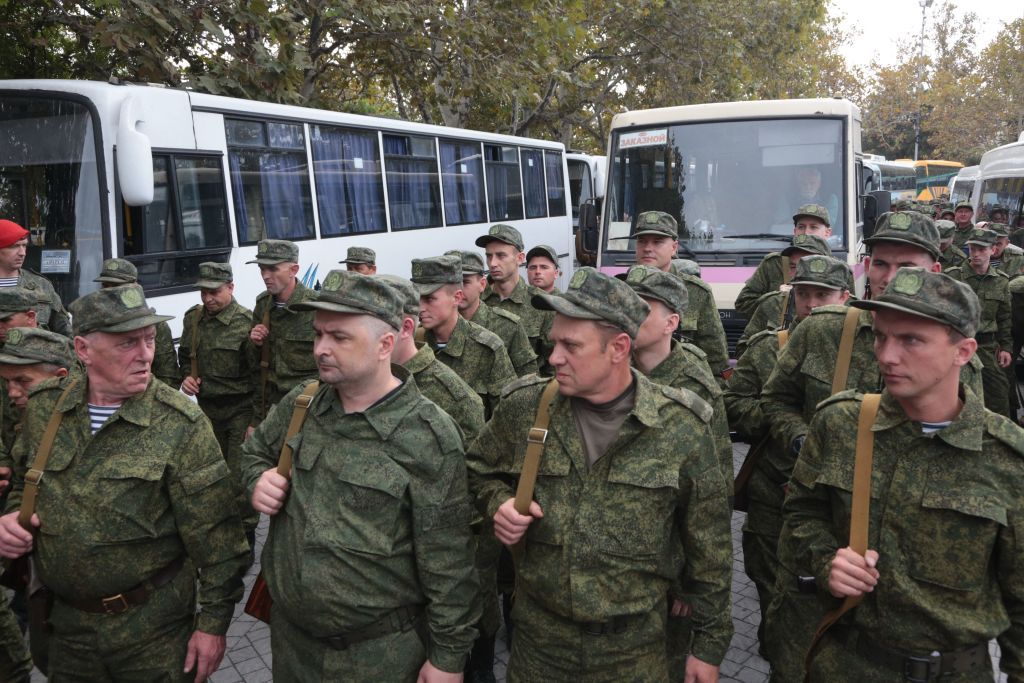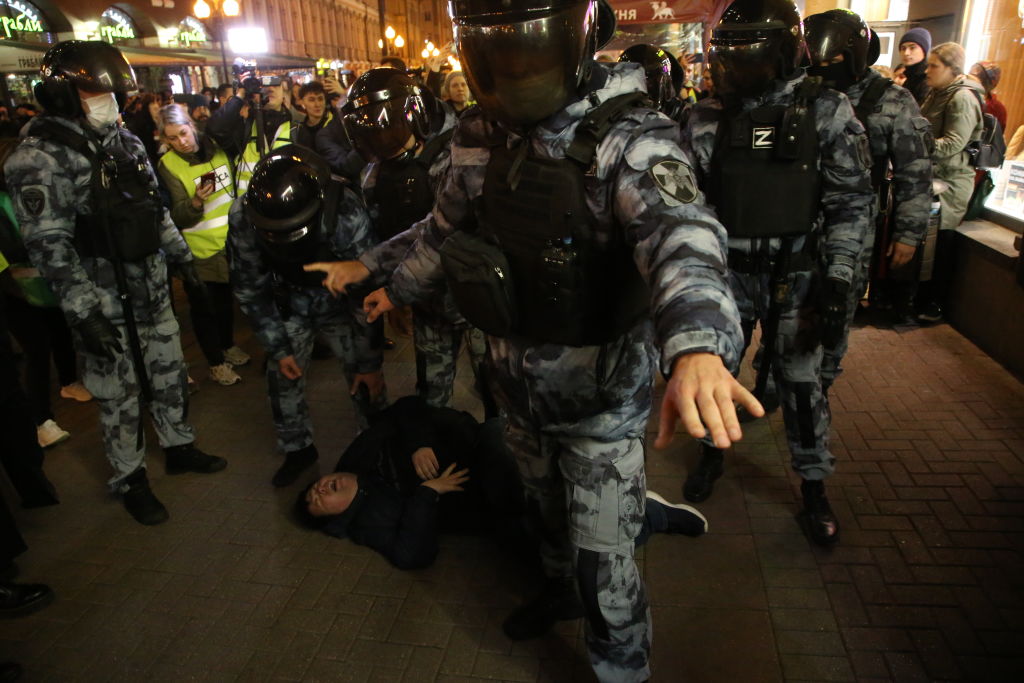UK Defense Ministry: Russia seeking to suppress domestic anti-mobilization sentiment

The Russian government is using different means to try and suppress a growing anti-mobilization movement stemming from the wives of deployed Russian soldiers, the U.K. Defense Ministry wrote on Dec. 2.
Russian authorities have sought to discredit the rare public display of dissent as well as offering increased cash payments for the families of mobilized soldiers if they agree to not protest.
A grassroots movement protesting the extended deployment of mobilized soldiers has been more vocal in Russia in recent weeks, with one of the major outlets for discontent being expressed on a Telegram channel called "The Way Home."
The channel is labeled "fake" by the platform, which the U.K. Defense Ministry said was likely the result of "instigation of pro-Kremlin actors."
According to an article by The New York Times on Nov. 28, protesters said that they were angry that many of the soldiers originally mobilized in late 2022 are still serving in Ukraine one year later.
The wives and families of the mobilized soldiers said that, at the very least, they want a rotation of troops.
Russian State Duma Defence Committee Chair Andrei Kartapolov said on Sept. 15 that mobilized soldiers were required to serve for the duration of the Ukraine war.
Russian authorities have not implemented the heavy-handed approach often used against protests in Russia, perhaps in part because the movement is not against the war.
"The groups protesting take pains to stress that they are not unpatriotic and that they strive to respect the law," The New York Times said.
In one of the popular videos shared on Telegram, one of the women protesting said, "If he did something heroic, spilled blood for his country sincerely, then maybe it was time to return to his family."
In the immediate aftermath of the full-scale invasion, there were explicitly anti-war protests across Russia, which the Russian police watchdog OVD-Info said resulted in the arrest of around 13,000 people in 147 different Russian cities.
Protests again broke out after mobilization was announced in late September 2022. As in this new movement, the trigger appeared to be a reaction to the war coming home, and resistance to seeing themselves or family members be sent to Ukraine, rather than anti-war sentiment per se.















